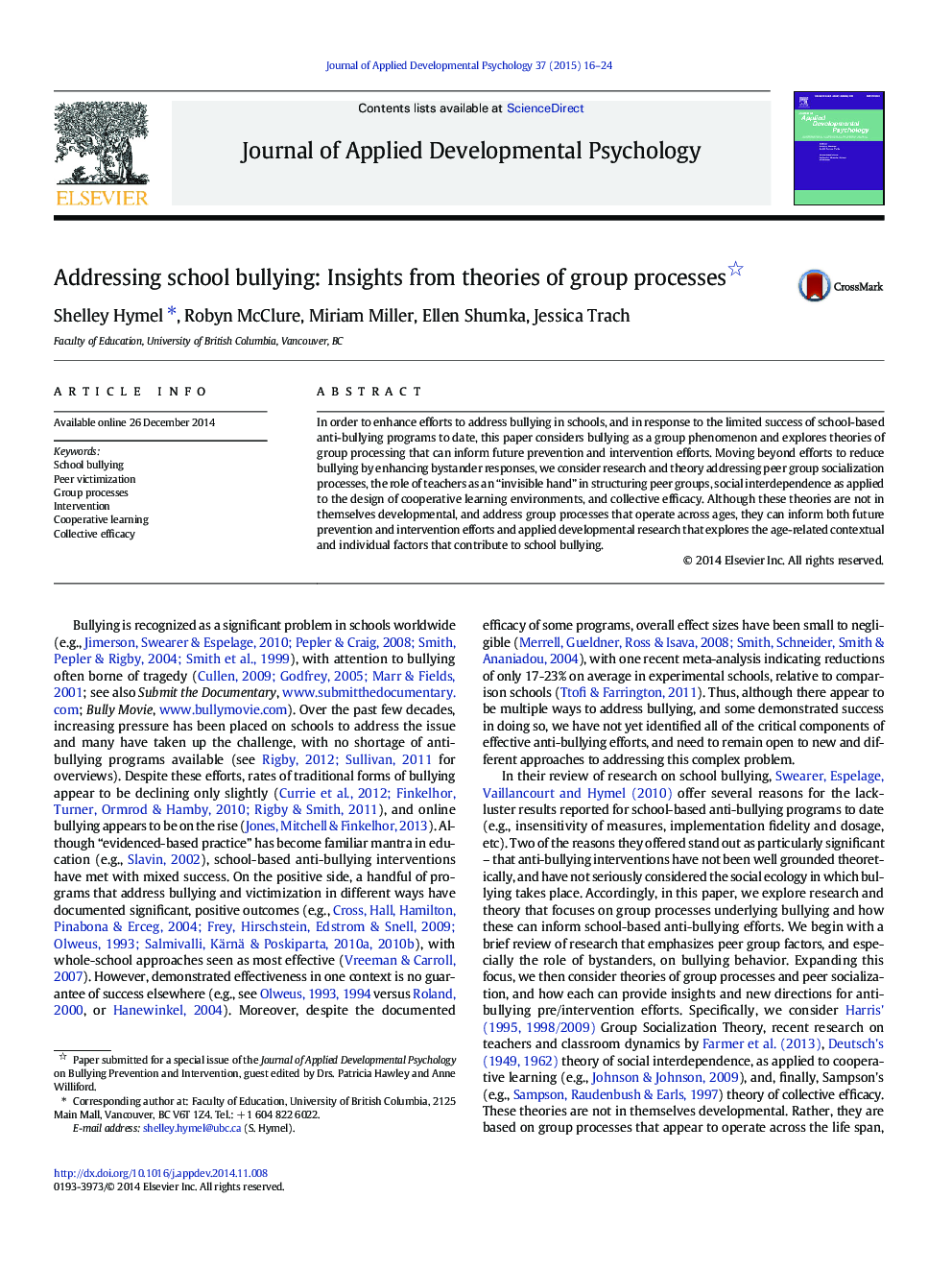| Article ID | Journal | Published Year | Pages | File Type |
|---|---|---|---|---|
| 359657 | Journal of Applied Developmental Psychology | 2015 | 9 Pages |
•Anti-bullying efforts can be enhanced by understanding group processes in classrooms.•Group Socialization Theory outlines basic processes that emerge in all human groups.•Teachers are in a unique position to influence classroom group processes.•Social interdependence and collective efficacy are core elements of caring learning environments.
In order to enhance efforts to address bullying in schools, and in response to the limited success of school-based anti-bullying programs to date, this paper considers bullying as a group phenomenon and explores theories of group processing that can inform future prevention and intervention efforts. Moving beyond efforts to reduce bullying by enhancing bystander responses, we consider research and theory addressing peer group socialization processes, the role of teachers as an “invisible hand” in structuring peer groups, social interdependence as applied to the design of cooperative learning environments, and collective efficacy. Although these theories are not in themselves developmental, and address group processes that operate across ages, they can inform both future prevention and intervention efforts and applied developmental research that explores the age-related contextual and individual factors that contribute to school bullying.
